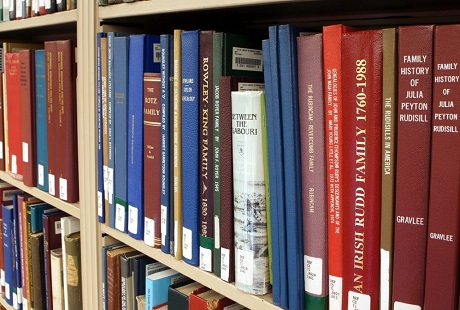 |
| Credit: Images Alight on Flickr |
Again this year, I missed several of the summer blockbusters as well.
Indeed, many of the best films I saw this past year were movies that I originally missed in the theaters in prior years. I saw a number of late 2017 Oscar-bait films in theaters earlier this year. Again, I'll surely see most of the 2018 Oscar-bait films early in 2019. I tend to discuss those films in my posts about the Oscars.
To make this abbreviated 2018 list (also, to jog my memory), I scanned the top grossing movies of the year, as well as IMDB's most popular titles for 2018. I also consulted Metacritic, which my spouse and I use to point us towards good movies all year long.
In rough rank order of my preference, these were the top 2018 films I saw this year, as best as I can recall:
Roma
BlackkKlansman **
First Man **
What They Had **
Eighth Grade
Searching
The Sisters Brothers **
Isle of Dog
Tully
Death of Stalin
Annihilation
Private Life
Chez Nous (This Is Our Land) **
** I saw these films in the theater, mostly in Ottawa at the ByTowne Cinema.
I suspect there are some serious Oscar contenders on this list. Indeed, that's a very good set of movies; I'd recommend essentially all of them (though Chez Nous had some serious weaknesses). Roma is like a real-life look into Mexico City life in the 1970s. BlackkKlansman is perhaps Spike Lee's best film since the early days of his career. First Man was an impressive technical achievement with a riveting story and interesting main character. What They Had, Eighth Grade, and Searching all struck strong emotional chords and were gripping dramas. The satire of The Sisters Brothers, Isle of Dog, Tully, and Death of Stalin made for fine commentary on an array of human predicaments and life in the 21st century (and 20th).
Annihilation is a metaphor for self-destruction. I read it broadly, reflecting long-term human annihilation of the biosphere. The environmentalist in me liked it more than the film fan.
The remainder of my 2018 list consists of genre films -- comedies, action flicks, and science fiction. They are not ranked very carefully, though I think that the ones near the top are superior to the ones near the bottom.These were all good films too, but some are flawed:
Deadpool 2
A Quiet Place
Small Town Crime
Mission Impossible: Fallout
Black Panther
Game Night
Hearts Beat Loud
Polka King
I'm not typically a fan of comic book films and mostly avoid/ignore horror. The high rankings of Deadpool 2 and A Quiet Place demonstrate that it is possible to make quality movies in those genres. I was really entertained by Game Night and liked Hearts Beat Loud, so it would be hard to find a dud here. I liked Black Panther, but cannot see why critics place it among their top 10 films of the year.
Documentary
Science Fair **
This was a fun and entertaining doc and it features some fellow Louisville residents in prominent roles.
Here's the annual list of 2018 movies that I intend to see in the future (hopefully in 2019):
22 July, American Animals, Anna and the Apocalypse, Ant Man and the Wasp, At Eternity's Gate, Avengers: Infinity War, Ballad of Buster Scruggs, Beautiful Boy, Beirut, Ben is Back, Black '47, Blaze, Blindspotting, Border, Boy Erased, Burning, Can You Ever Forgive Me?, Chappaquiddick, Cold War, Colette, Crazy Rich Asians, Dark Money, Destroyer, Disobedience, Don't Worry He Won't Get Far on Foot, Early Man, Far from the Tree, The Favourite, First Reformed, The Front Runner, Golden Exits, Goldstone, Green Book, The Guernsey, The Guilty, Happy as Lazzaro, The Happy Prince, The Hate U Give, Hereditary, Hold the Dark, If Beale Street Could Talk, Juliet Naked, Keep the Change, Kindergarten Teacher, Leave No Trace, Love After Love, Mid90s, Minding the Gap, Ocean's 8, Old Man & the Gun, Other Side of the Wind, Outside In, The Party, Private War, Prospect, Ready Player One, The Rider, Shoplifters, Sicario: Day of the Soldado, Sierra Burgess Is a Loser, A Simple Favor, Solo: Star Wars Story, Sorry to Bother You, Stan & Ollie, A Star is Born, Support the Girls, Sweet Country, The Tale, Tea with the Dames, Thoroughbreds, Thunder Road, Under the Silver Lake, Unsane, Upgrade, Utoya - July 22, Vox Lux, Widows, The Wife, Wildlife, Won't You Be My Neighbor?, You Were Never Really Here, Zama.
Keep in mind that I didn't (yet) get around to seeing many 2017 movies from last year's wishlist:
1922, Alien Covenant, All the Money in the World, Ballad of Lefty Brown, Beguiled, Berlin Syndrome, Buster's Mal Heart, Call Me By Your Name, Catfight, Detroit, The Founder, Foxtrot, From Nowhere, Gerald's Game, Girl With All the Gifts, God's Own Country, Happy End, Headshot, The Hero, Hostiles, Hounds of Love, I Daniel Blake, It Comes at Night, Killing of a Sacred Deer, Kong: Skull Island, Land of Mine (Under Sandet), Lost City of Z, Marshall, Moka, Molly's Game, Mother!, Norman, Personal Shopper, Phantom Thread, Professor Marston & the Wonder Women, Quiet Passion, Salesman, Sense of Ending, The Square, Stronger, Super Dark Times, Survivalist, Sweet Virginia, T2 Trainspotting, To the Bone, United Kingdom, Wakefield, Wonder, Wonder Woman, You Were Never Really Here.
Visit this blog's homepage.
For 140 character IR and foreign policy talk, follow me on twitter.
Or for basketball, baseball, movies or other stuff, follow this personal twitter account.



























